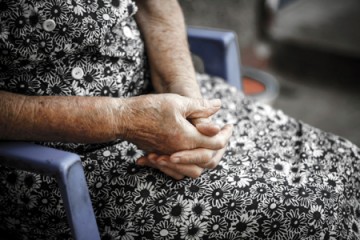Delaying or avoiding diagnosis for dementia could be a risk not worth taking, a new Johns Hopkins study suggests.
The study, reported in the June issue of Journal of the American Geriatrics Society, found that people who show signs of dementia but lack a formal diagnosis are twice as likely as those diagnosed with dementia to partake in potentially unsafe activities like driving, cooking, and managing finances and medication.
"When patients receive a formal dementia diagnosis, their families are typically aware that, at some point, their loved ones will not be able to drive or will need more help with their medicine," says study leader Halima Amjad, a fellow in the School of Medicine's Division of Geriatric Medicine and Gerontology. "But when people are undiagnosed, families and friends may ignore or be unaware of functional problems that already exist."
An estimated 5 million people in the U.S. have some form of dementia, including Alzheimer's disease, and the prevalence is projected to nearly triple by 2050. Multiple studies have suggested that about half of those with dementia are undiagnosed.
For this study, researchers used data from more than 7,600 volunteers through an ongoing Hopkins survey tracking Medicare beneficiaries age 65 and older across the nation. Amjad's team identified participants as having probable but undiagnosed dementia if they scored below a certain threshold on cognitive tests or interviews. Other groups were identified as having formally diagnosed dementia, possible dementia, or no dementia.
Researchers asked all participants about activities that could be unsafe with dementia, including providing care to another person, driving, preparing hot meals, managing finances and medications, traveling alone to doctors' visits, or falling. They also asked about unmet needs—for example, whether participants ever went without food or bathing because they didn't have enough help.
The good news, Amjad says, is that those with dementia—either diagnosed or undiagnosed—were engaging less frequently in potentially unsafe activities than those with possible or no dementia. For example, about 23 percent with probable dementia were driving, compared to 59 percent with possible dementia and 84 percent with no dementia.
"Either the patients themselves or their family members are self-regulating and doing these activities less frequently as their disease is progressing," Amjad says.
However, the study also revealed a significant gap between those with formally diagnosed dementia and those with undiagnosed but probable dementia, with the latter group proving far more likely to take part in unsafe activities. For example, while about 17 percent of volunteers with diagnosed dementia were still driving, nearly 28 percent of those with undiagnosed dementia were doing so. Additionally, nearly 22 percent of the diagnosed were still handling their own medications, compared to around 50 percent of the undiagnosed.
Amjad says the findings should encourage more formal screenings for dementia for elderly patients having difficulties with activities.
"Families are really the front line in recognizing when someone shouldn't be driving or needs more help with managing medicine," she says.
Read more from School of MedicinePosted in Health
Tagged aging, mental health, dementia








